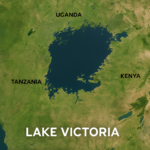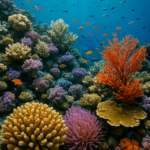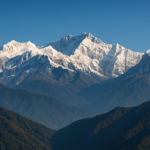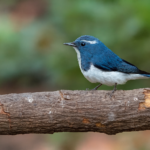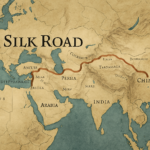
The Daintree Rainforest is a 1,200 square mile tropical rainforest on Australia’s east coast in Queensland. It was named after Richard Daintree, an Australian geologist and photographer who lived in the nineteenth century. Daintree Rainforest includes Daintree National Park, some State Forest, and privately owned land. The Daintree Rainforest ecosystem is one of the most complex in the world, and it is Australia’s longest continuous tropical rainforest. The Daintree Rainforest is part of the Wet Tropics of Queensland World Heritage Site, which was designated by UNESCO in 2015.
Interesting facts about Daintree Rainforest:
- Access Points: Visitors to the Daintree Rainforest can embark on their journey from several key locations, including Port Douglas, Cairns, Cape Tribulation, and Cooktown. These towns serve as gateways to the rainforest, providing various tour options, accommodations, and amenities for travelers. Each departure point offers unique access to different parts of the rainforest, allowing visitors to explore diverse ecosystems and attractions, such as guided tours, wildlife spotting, and scenic drives.
- Age of the Rainforest: The Daintree Rainforest is estimated to be at least 180 million years old, making it the oldest tropical rainforest in the world. This incredible age means that the Daintree has survived multiple climate changes and geological events, evolving into a rich and diverse ecosystem. Its ancient lineage has allowed it to retain a unique array of flora and fauna, many of which are considered living fossils, providing invaluable insight into the Earth’s evolutionary history.
- UNESCO World Heritage Sites: Both the Daintree Rainforest and the Great Barrier Reef are recognized as UNESCO World Heritage Sites, highlighting their exceptional natural beauty and ecological significance. They are unique in that they are the only two sites in the world that meet the criteria for both natural heritage and biodiversity. Their designation as World Heritage Sites underscores the importance of preserving these areas for future generations, as they represent irreplaceable ecosystems that contribute to global biodiversity.
- Large Tropical Trees: The Daintree Rainforest is home to some of the largest tropical trees on the planet, including the Bull Kauri, which can grow to impressive heights and girths. These towering trees play a crucial role in the rainforest ecosystem, providing habitat for countless species and contributing to the overall structure and health of the forest. The sheer size and age of these trees are a testament to the rainforest’s ancient and diverse biological heritage.
- Environmental Threats: Despite its World Heritage status, the Daintree Rainforest faces several threats, including climate change, the introduction of feral animals, invasive weed growth, and residential development. These challenges disrupt the delicate balance of the ecosystem, leading to habitat loss and degradation. Conservation efforts are critical to mitigating these threats and ensuring the survival of the rainforest’s unique biodiversity, which is vital for maintaining ecological health.
- Plant Species Diversity: The Daintree Rainforest boasts over 3,000 plant species, with more than 395 classified as rare or threatened. This rich biodiversity is essential for maintaining ecological balance and provides habitat and food for various wildlife species. The rainforest’s unique microclimates and varied topography contribute to the high number of endemic plant species, many of which cannot be found anywhere else in the world.
- Rare Wildlife: Among the rare species found in the Daintree Rainforest are cassowaries, Bennet’s tree kangaroos, Ulysses butterflies, and white-lipped tree frogs. These species are integral to the rainforest’s ecosystem, playing roles in seed dispersal and maintaining the health of the environment. The presence of such diverse and unique wildlife highlights the importance of conservation efforts to protect these species and their habitats.
- Insect Diversity: More than 12,000 insect species inhabit the Daintree Rainforest, contributing to its rich biodiversity. These insects play vital roles in pollination, decomposition, and serving as food sources for various animals. The sheer number of insect species reflects the complexity of the rainforest ecosystem, where each species has a specific role that supports the overall health and function of the environment.
- Mammal Species: The Daintree Rainforest is home to 34% of all mammal species found in Australia, showcasing its significance as a biodiversity hotspot. This includes a variety of marsupials, bats, and other mammals that rely on the rainforest for habitat and food. The presence of such a diverse range of mammals underscores the ecological importance of preserving the rainforest and its unique habitats.
- Bird and Frog Diversity: The rainforest is home to 40% of Australia’s bird species, 28% of its frogs, and 65% of its ferns. This incredible diversity provides essential ecological functions, such as pest control and plant pollination. The variety of habitats within the rainforest supports these species, making it a critical area for conservation efforts to maintain biodiversity and ecological health.
- Traditional Inhabitants: The Kuku Yalanji people are the traditional inhabitants of the Daintree Rainforest, with a rich cultural connection to the land that spans thousands of years. Their deep understanding of the rainforest’s ecosystems and sustainable practices highlights the importance of Indigenous knowledge in conservation efforts. This cultural heritage is integral to the identity of the region and contributes to the ongoing preservation of the rainforest.
- Unique Flora: The Daintree Rainforest is home to several plant species that can only exist within its unique ecosystem and cannot be found anywhere else on the planet. This includes plants that have adapted to the specific climate, soil types, and ecological conditions of the rainforest, leading to high levels of endemism. One notable example is the “idiot fruit,” a rare flowering plant considered to be one of the most primitive of its kind. The presence of such unique flora underscores the importance of protecting the Daintree, as its biodiversity contributes significantly to global plant heritage.
- Conservation History: The Daintree Rainforest faced significant threats from logging and other human activities in the 1980s, which prompted widespread concern for its preservation. In response to these threats, the rainforest was designated as a UNESCO World Heritage Site, providing it with legal protection and raising awareness about its ecological importance. This designation has been crucial in mobilizing conservation efforts and resources to protect the rainforest from further degradation, ensuring that its unique biodiversity can be preserved for future generations.
- Tourist Activities: Observing saltwater crocodiles is a popular activity in the Daintree, attracting many visitors eager to experience the rainforest’s wildlife up close. In addition to crocodile spotting, visitors can enjoy a variety of activities, including day trips, river cruises, and four-wheel-drive tours that explore the forest’s diverse landscapes. These activities not only provide an opportunity for adventure but also foster appreciation for the rainforest’s rich biodiversity and ecological significance.
- Comparison with the Amazon: The Daintree Rainforest is tens of millions of years older than the Amazon Rainforest, highlighting its ancient ecological history. While both rainforests are vital to global biodiversity, the Daintree’s age contributes to its unique plant and animal species, many of which have evolved over millions of years. This comparison emphasizes the Daintree’s importance as a living laboratory for studying evolution, ecology, and conservation.
- Visitor Statistics: Every year, at least 400,000 people visit the Daintree Rainforest, drawn by its natural beauty and ecological significance. This influx of visitors supports local economies and raises awareness about the importance of conservation. However, it also presents challenges in terms of managing tourism sustainably to ensure that the delicate ecosystems are not disturbed and that the rainforest can continue to thrive.
- The Idiot Fruit: The idiot fruit, a rare flowering plant found in the Daintree Rainforest, is notable for being one of the most primitive flowering plants in existence. Discovered in 1970, it has provided further evidence of the rainforest’s ancient lineage and unique biodiversity. The plant’s rarity and evolutionary significance make it a symbol of the Daintree’s ecological heritage, underscoring the need for ongoing conservation efforts to protect such unique species.
- Ancient Plants: The ancient plants that grow in the Daintree Rainforest are often referred to as “Green Dinosaurs” due to their long evolutionary history and resemblance to prehistoric flora. These plants, which include ferns and cycads, have survived through various geological eras, offering a glimpse into the Earth’s past. Their existence in the Daintree highlights the rainforest’s role as a living museum of plant evolution and the importance of preserving these ancient species.
- Biodiversity: The Daintree Rainforest is home to a vast array of wildlife, including venomous snakes, colorful birds, frogs, mammals, insects, lizards, and a variety of scaly reptiles. This incredible biodiversity is a result of the rainforest’s complex ecosystems and microhabitats, which provide niches for countless species. The interdependence of these organisms illustrates the delicate balance of the rainforest ecosystem and the importance of protecting it to maintain biodiversity.
Frequently Asked Questions about Daintree Rainforest:
- What is the Daintree Rainforest?
- The Daintree Rainforest is one of the oldest rainforests in the world, located in Queensland, Australia. It is part of the Daintree National Park and is recognized for its rich biodiversity, including unique flora and fauna that have existed for millions of years. The rainforest covers approximately 1,200 square kilometers and is a UNESCO World Heritage Site.
- What makes the Daintree Rainforest unique?
- The Daintree is unique due to its age, estimated to be around 180 million years old, and its high level of biodiversity. It is home to thousands of plant species, many of which are found nowhere else on Earth, as well as a variety of animal species, including the endangered cassowary bird and the tree kangaroo. The rainforest also features a range of ecosystems, from mangroves to tropical lowland rainforests.
- How can I visit the Daintree Rainforest?
- Visitors can access the Daintree Rainforest via the Daintree River Ferry, which connects the northern and southern parts of the park. There are several walking trails, guided tours, and accommodations available in and around the area. Popular activities include hiking, wildlife spotting, and guided tours that provide insights into the rainforest’s ecology and Aboriginal culture.
- What wildlife can be found in the Daintree Rainforest?
- The Daintree is home to a diverse range of wildlife, including over 430 species of birds, 50 species of mammals, and numerous reptiles and amphibians. Notable species include the cassowary, the Boyd’s forest dragon, and the Lumholtz’s tree kangaroo. The rainforest is also home to many unique insects and plant species.
- Is the Daintree Rainforest safe to visit?
- Yes, the Daintree Rainforest is generally safe for visitors, but it is important to take precautions. Visitors should stay on marked trails, be aware of wildlife, and take care against the potential for insect bites, including mosquitoes. It’s also advisable to check weather conditions before visiting, as heavy rains can lead to flooding in certain areas.
- What is the best time to visit the Daintree Rainforest?
- The best time to visit the Daintree Rainforest is during the dry season, from May to September. During this period, the weather is cooler and less humid, making it more comfortable for outdoor activities. The wet season, from November to April, can bring heavy rainfall and increased humidity, which may limit some activities.
- Are there any guided tours available in the Daintree Rainforest?
- Yes, there are numerous guided tours available that cater to different interests, such as wildlife spotting, photography, and cultural experiences. Many local companies offer half-day and full-day tours, which can include activities like river cruises, rainforest walks, and visits to Aboriginal cultural sites.
- What conservation efforts are in place for the Daintree Rainforest?
- Conservation efforts in the Daintree Rainforest focus on protecting its unique ecosystems and biodiversity. This includes the management of tourism, habitat restoration projects, and collaboration with Indigenous communities to preserve cultural heritage and traditional land management practices. Various organizations work to raise awareness and support conservation initiatives in the area.
